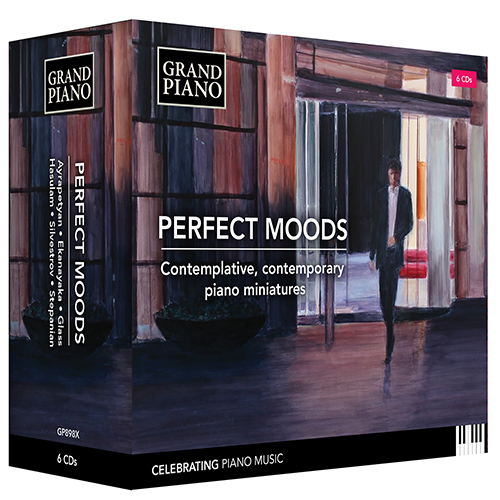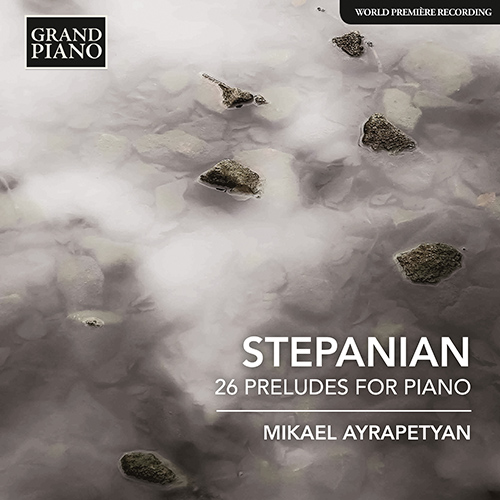
Haro Stepanian (1897 - 1966)
Haro Stepanian was born in the year of Brahms’s death in Yelizabetpol—now Ganja, in western Azerbaijan. Stepanian trained in Moscow, at the Gnessin Music College, from 1923–26, where his fellow pupils included Aram Khachaturian (1903–1978). He subsequently joined the composition class of Vladimir Shcherbachov at the State Conservatory in Leningrad (St Petersburg), where his Armenian heritage did not go unnoticed: Shcherbachov wrote that he was ‘a composer of undoubted talent with the features of Armenian colouring.’ Following graduation, Stepanian began teaching at the State Conservatory in Armenia’s capital, Yerevan; and by the late 1930s he was the chairman of the organising committee of the Armenian Union of Composers. He became increasingly interested in the folk music of his own country, and undertook a number of expeditions to collect musical samples from around Armenia. ‘I fell in love with Armenian folk music,’ he explained, ‘as one loves one’s mother, one’s friend or one’s beloved. In it I heard the voice of the heart and soul of my native country, the echoes of historical storms, sorrows, joys and hopes, anger and dreams of my people. Throughout my life I looked upon it as if it were a living being.’ His work in this area was greatly admired, and Khachaturian (with whom he remained close friends) wrote to him in 1953, ‘I think you are the greatest Soviet Armenian composer, whose merits before the native art are really great.’
Stepanian was awarded the Stalin Prize, third class, in 1951 for his opera Heroine (premiered in Yerevan)—the fourth of five completed operas—and named People’s Artist of the Armenian SSR in 1960. He also composed three symphonies and numerous songs and chamber works. It is notable, however, that despite the large-scale compositions of the mid-1940s to early 1950s, Stepanian retained an interest in miniatures throughout his career. His teacher in Moscow, Mikhail Fabianovich Gnessin, remarked that as a student, Stepanian had a delicate musical taste and poetic stylistic aspirations. ‘Helping him to refine his fine and talented vocal and piano works was a real pleasure. In those years Haro Stepanian had no desire for larger constructions, consciously seeking possible perfection in the field of musical miniatures.’



 Grand Piano has gained a reputation for producing high quality recordings of rare keyboard gems. Dedicated to the exploration of undiscovered piano repertoire, the label specialises in complete cycles of piano works by many lesser-known composers, whose output might otherwise have remained unknown and unrecorded.
Grand Piano has gained a reputation for producing high quality recordings of rare keyboard gems. Dedicated to the exploration of undiscovered piano repertoire, the label specialises in complete cycles of piano works by many lesser-known composers, whose output might otherwise have remained unknown and unrecorded.






